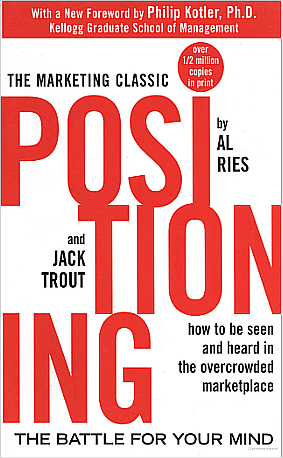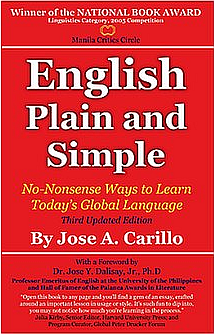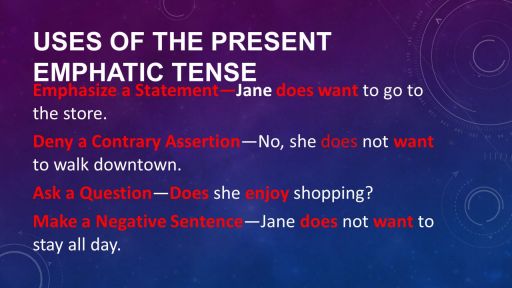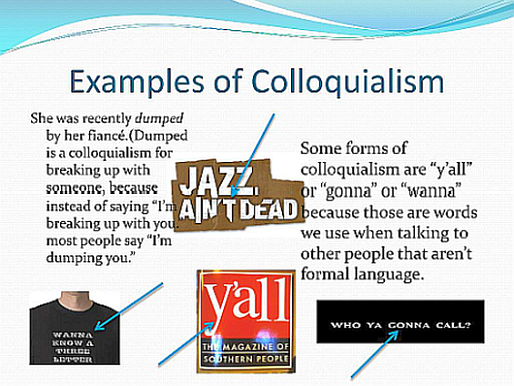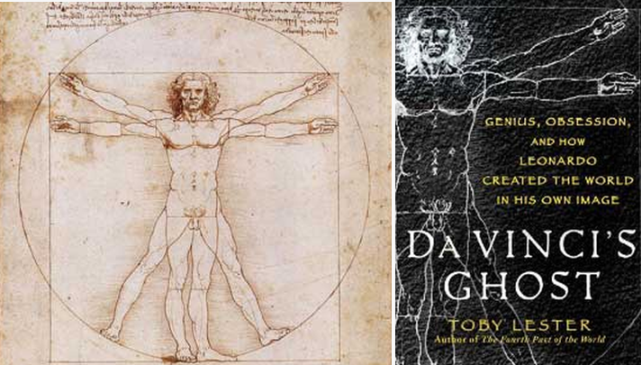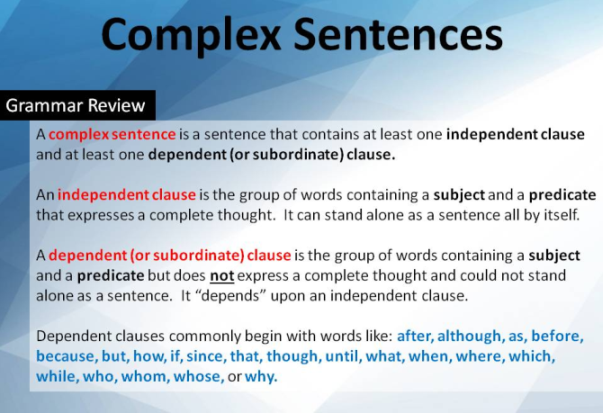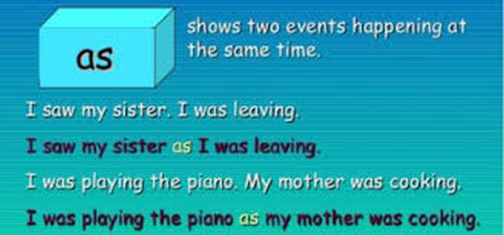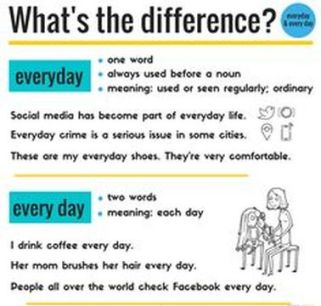91
Use and Misuse / Avoid using "and/or" because it's a "grammatical abomination"
« Last post by Gerry T. Galacio on November 16, 2023, 02:23:53 PM » A. Bryan A. Garner is the author of "Garner’s Modern American Usage," "The Redbook: A Manual on Legal Style," "Harvard Business Review Guide to Better Business Writing," and "Legal Writing in Plain English." He has also co-authored two books with the late US Supreme Court Justice Antonin Scalia. He has trained more than 150,000 American lawyers on the Plain English style of legal writing and has edited all current editions of the authoritative Black's Law Dictionary.
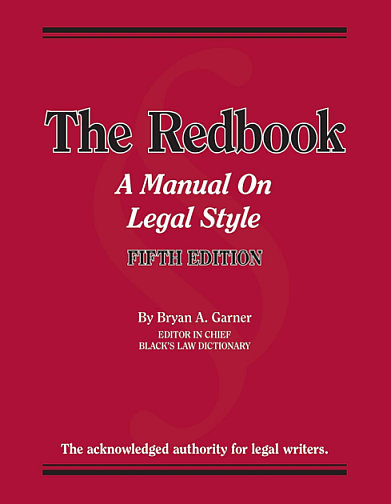
In "The Redbook: A Manual on Legal Style," Garner says:
"The slash . . . has few uses in formal writing except with dates and fractions. It is best known as the star character in two grammatical abominations: and/or and he/she. It is especially unfit for legal writing because it is inherently ambiguous."
Garner includes "and/or" in his "Dirty Dozen" list of words and phrases that legal writers should avoid. He says that American courts have ruled, as early as 1932, that 'and/or' is not part of the English language.
B. In the UK House of Lords, Viscount Simon LC in "Bonitto v Fuerst Bros and Co Ltd" (1944) described "and/or" as a "bastard conjunction."
C. Recent Australian court rulings condemning "and/or":
D. Recent US court rulings condemning "and/or":
E. Louis-Philippe Pigeon, former Justice of the Supreme Court of Canada:
"And/or" seems to be used by writers whose main concern is to appear erudite. In my opinion, quite the opposite impression is created. Use of this conjunction which is not a conjunction is repugnant to the spirit of the language, English or French. (Drafting and Interpreting Legislation, 1988)
F. Some 1930s US court rulings condemning "and/or":
G. Michigan Bar Journal, August 2003, by Scott P. Stolley:
The real problem with "and/or" is that it plays into the hands of a bad faith-reader. Which one is favorable? And or Or? The bad faith-reader can pick one or the other, or both — whatever reading is better from that reader’s perspective.
Original sentence using "and/or":
"The negligence of Defendant Jones and/or Defendant Smith proximately caused Plaintiff ’s injuries."
Alternatives:
"The negligence of Defendant Jones or Defendant Smith proximately caused Plaintiff ’s injuries."
" … of Defendant Jones or Defendant Smith, or both"
H. Philippine Supreme Court decisions on proper interpretation of "and/or":
(1) "China Banking Corporation and CBC Properties and Computer Center Inc., Petitioners v. The members of the Board of Trustees, Home Development Mutual Fund (HDMF); HDMF President; and the Home Mutual development Fund, Respondents." G.R. No. 131787, May 19, 1999
(2) "Antonio D. Dayao, Rolando P. Ramirez and Adelio R. Capco, Petitioners, vs. Commission on Elections and LPG Marketers Association Inc., Respondents." G.R. No. 193643, January 29, 2013
Overview of the Supreme Court rulings:
(1) Chinabank vs. HDMF, 1999:
Section 19 of P.D. No. 1752 intended that an employer with a provident plan or an employee housing plan superior to that of the fund may obtain exemption from coverage. If the law had intended that the employer should have both a superior provident plan and a housing plan in order to qualify for exemption, it would have used the word "and" instead of "and/or."
(2) Dayao vs. Comelec, 2013:
The legal meaning of the term "and/or" between "refusal" and "cancellation" should be taken in its ordinary significance — "refusal and/or cancellation" means "refusal and cancellation" or "refusal or cancellation." It has been held that the intention of the legislature in using the term "and/or" is that the word "and" and the word "or" are to be used interchangeably.
The word "or," on the other hand, is a disjunctive term signifying disassociation and independence of one thing from the other things enumerated; it should, as a rule, be construed in the sense in which it ordinarily implies, as a disjunctive word. As such, "refusal or cancellation," consistent with their disjunctive meanings, must be taken individually to mean that they are separate instances when the Comelec can exercise its power to screen the qualifications of party-list organizations for purposes of participation in the party-list system of representation.
That this is the clear intent of the law is bolstered by the use simply of the word "or" in the first sentence of Section 6 that "the Comelec may, motu propio or upon verified complaint of any interested party, refuse or cancel, after due notice and hearing, the registration of any national, regional or sectoral party, organization or coalition."
Plain English summary:
(1) The controversies in both cases cited above could have been prevented if our legislators had avoided using the phrase "and/or" and had clarified matters by choosing between "and" or "or."
And yet, if you look at the House bills and Senate bills that have been filed in the current 19th Congress, you will still see "and/or" being used.
(2) In coming up with its rulings in these two cases, the Supreme Court followed the rule in Statutory Construction that every word in a statute must be given effect.
It's astounding that the researchers who helped the justices who wrote these rulings seem to have been unaware of the numerous rulings from courts in the US, UK, and Australia that have condemned the use of "and/or."
---------------------
RELATED READING:
"Should Academics Use ‘And/Or’ In Their Writing?" by Trinka
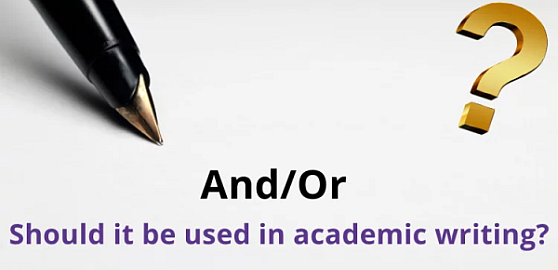

In "The Redbook: A Manual on Legal Style," Garner says:
"The slash . . . has few uses in formal writing except with dates and fractions. It is best known as the star character in two grammatical abominations: and/or and he/she. It is especially unfit for legal writing because it is inherently ambiguous."
Garner includes "and/or" in his "Dirty Dozen" list of words and phrases that legal writers should avoid. He says that American courts have ruled, as early as 1932, that 'and/or' is not part of the English language.
B. In the UK House of Lords, Viscount Simon LC in "Bonitto v Fuerst Bros and Co Ltd" (1944) described "and/or" as a "bastard conjunction."
C. Recent Australian court rulings condemning "and/or":
- Harrison Green vs. The Queen (2000)
- Extraman et al vs. Blenkinship et al (2008)
- Canberra Data vs. Vibe Construction (March 2010)
D. Recent US court rulings condemning "and/or":
- California Trout Inc v State Water Resources Bd, 255 Cal Rpter 184 at 194, 1989: "And/or" is taboo in legislative drafting.
- In Re Estate Of Massey (Superior Court Of New Jersey, Chancery Division, Probate Part, Monmouth County, October 1998)
- State of New Jersey vs. Zaair Tuck (Superior Court Of New Jersey Appellate Division, January 2006)
- State of New Jersey v. Victor Gonzales (Superior Court Of New Jersey Appellate Division, January 2016)
E. Louis-Philippe Pigeon, former Justice of the Supreme Court of Canada:
"And/or" seems to be used by writers whose main concern is to appear erudite. In my opinion, quite the opposite impression is created. Use of this conjunction which is not a conjunction is repugnant to the spirit of the language, English or French. (Drafting and Interpreting Legislation, 1988)
F. Some 1930s US court rulings condemning "and/or":
- Minor v. Thomasson, 236 Ala. 247, 182 So. 16, 18 (Ala.1938) ("the interloping disjunctive -conjunctive-conjunctive-disjunctive conjunction")
- Cochrane v. Florida East Coast R. Co., 107 Fla. 431, 145 So. 217, 218 (Fla.1932) ("one of those inexcusable barbarisms which was sired by indolence and dammed by indifference ... senseless jargon")
- Bell v. Wayne United Gas Co., 116 W.Va. 280, 281, 181 S.E. 609, 618 (W.Va.1935) ("a disingenuous, modernistic hybrid, inept and irritating")
- State ex rel. Adler v. Douglas, 339 Mo. 187, 95 S.W.2d 1179, 1180 (Mo.1936) ("meaningless symbol")
- American Gen. Ins. Co. v. Webster, 118 S.W.2d 1082, 1084 (Tex.Civ.App. 1938) ("the abominable invention")
G. Michigan Bar Journal, August 2003, by Scott P. Stolley:
The real problem with "and/or" is that it plays into the hands of a bad faith-reader. Which one is favorable? And or Or? The bad faith-reader can pick one or the other, or both — whatever reading is better from that reader’s perspective.
Original sentence using "and/or":
"The negligence of Defendant Jones and/or Defendant Smith proximately caused Plaintiff ’s injuries."
Alternatives:
"The negligence of Defendant Jones or Defendant Smith proximately caused Plaintiff ’s injuries."
" … of Defendant Jones or Defendant Smith, or both"
H. Philippine Supreme Court decisions on proper interpretation of "and/or":
(1) "China Banking Corporation and CBC Properties and Computer Center Inc., Petitioners v. The members of the Board of Trustees, Home Development Mutual Fund (HDMF); HDMF President; and the Home Mutual development Fund, Respondents." G.R. No. 131787, May 19, 1999
(2) "Antonio D. Dayao, Rolando P. Ramirez and Adelio R. Capco, Petitioners, vs. Commission on Elections and LPG Marketers Association Inc., Respondents." G.R. No. 193643, January 29, 2013
Overview of the Supreme Court rulings:
(1) Chinabank vs. HDMF, 1999:
Section 19 of P.D. No. 1752 intended that an employer with a provident plan or an employee housing plan superior to that of the fund may obtain exemption from coverage. If the law had intended that the employer should have both a superior provident plan and a housing plan in order to qualify for exemption, it would have used the word "and" instead of "and/or."
(2) Dayao vs. Comelec, 2013:
The legal meaning of the term "and/or" between "refusal" and "cancellation" should be taken in its ordinary significance — "refusal and/or cancellation" means "refusal and cancellation" or "refusal or cancellation." It has been held that the intention of the legislature in using the term "and/or" is that the word "and" and the word "or" are to be used interchangeably.
The word "or," on the other hand, is a disjunctive term signifying disassociation and independence of one thing from the other things enumerated; it should, as a rule, be construed in the sense in which it ordinarily implies, as a disjunctive word. As such, "refusal or cancellation," consistent with their disjunctive meanings, must be taken individually to mean that they are separate instances when the Comelec can exercise its power to screen the qualifications of party-list organizations for purposes of participation in the party-list system of representation.
That this is the clear intent of the law is bolstered by the use simply of the word "or" in the first sentence of Section 6 that "the Comelec may, motu propio or upon verified complaint of any interested party, refuse or cancel, after due notice and hearing, the registration of any national, regional or sectoral party, organization or coalition."
Plain English summary:
(1) The controversies in both cases cited above could have been prevented if our legislators had avoided using the phrase "and/or" and had clarified matters by choosing between "and" or "or."
And yet, if you look at the House bills and Senate bills that have been filed in the current 19th Congress, you will still see "and/or" being used.
(2) In coming up with its rulings in these two cases, the Supreme Court followed the rule in Statutory Construction that every word in a statute must be given effect.
It's astounding that the researchers who helped the justices who wrote these rulings seem to have been unaware of the numerous rulings from courts in the US, UK, and Australia that have condemned the use of "and/or."
---------------------
RELATED READING:
"Should Academics Use ‘And/Or’ In Their Writing?" by Trinka



 Recent Posts
Recent Posts
